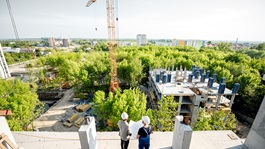The Supreme Court of Canada recently denied the O’Chiese First Nation leave to appeal the Alberta Court of Appeal’s (ABCA) decision in O’Chiese First Nation v Alberta Energy Regulator, 2015 ABCA 348, which refused to overturn a standing decision made by the Alberta Energy Regulator (AER). In the ABCA decision, the court held that the O’Chiese First Nation could not appeal the AER decision as the appeal was a question of mixed fact and law, had no merit, and did not satisfy the “directly and adversely affected” test.
Background
In 2014 and 2015, Shell Canada Limited made a number of applications to the AER for approval of natural gas pipelines, pipeline agreements, and a surface lease over land located within the O’Chiese First Nation Consultation Area.1 Prior to submitting the applications, Shell received approval from Alberta’s Aboriginal Consultation Office that either Shell’s previous consultation with the O’Chiese First Nation was sufficient or that further consultation was unnecessary under the circumstances. Shell submitted its consultation logs to the AER, which indicated that no site-specific information regarding impacts was provided by the O’Chiese First Nation.
After Shell’s first two applications were submitted, the O’Chiese First Nation filed a statement of concern with the AER raising general concerns.2 The AER determined these statements contained insufficient information to demonstrate how approval might “directly and adversely affect” the O’Chiese First Nation. As a result, the AER approved Shell’s applications without conducting a hearing, in part due to the lack of specific concerns demonstrating how the O’Chiese First Nation would be directly and adversely affected.
The O’Chiese First Nation then filed requests for the AER to conduct a regulatory appeal of the approvals. In denying these requests, the AER concluded that the O’Chiese First Nation was ineligible to appeal the decisions, as it did not satisfy the factual requirements of the “directly and adversely affected” test by virtue of having adduced no specific evidence. This decision was appealed to the ABCA.
The application for leave to appeal
An AER decision may be appealed to the ABCA on a question of jurisdiction or on a question of law, pursuant to s. 45(1) of the Responsible Energy Development Act (REDA). For leave to be granted, the question of jurisdiction or law must raise a serious arguable point, which requires the court to consider whether an appeal is prima facie meritorious.
Under the REDA, an internal regulatory appeal of an AER decision can only be instituted by an “eligible person,” which is defined as “a person who is directly and adversely affected by a decision.” The O’Chiese First Nation argued it fell within the definition of “directly and adversely affected,” despite having not led specific evidence demonstrating the same. Instead, the O’Chiese First Nation argued it satisfied the direct and adverse requirement simply due to the fact that the land approvals under the applications were located within their consultation area, and that any development within this area automatically affected the O’Chiese First Nations’ treaty and Aboriginal rights.
Decision by the Alberta Court of Appeal
The ABCA held that the AER applied a legal standard, the “directly and adversely affected” test, to a set of facts; as such, this was a question of mixed fact and law and not an appealable decision under the REDA.
The ABCA further determined that the O’Chiese First Nation’s argument that it was directly and adversely affected by any development within the consultation area was without merit. This was especially the case given that the O’Chiese First Nation did not judicially review the Aboriginal Consultation Office’s decision with respect to the satisfaction of Crown consultation, such that Crown consultation was not at issue in the appeal. By arguing it was directly and adversely affected as a matter of law due to a restriction of treaty rights, the O’Chiese First Nation conflated the duty to consult with the strict appeal requirements of the REDA.
Having chosen not to adduce any evidence to demonstrate it would be directly and adversely affected by the approvals, the O’Chiese First Nation could not now appeal the AER’s decision to the ABCA.
Implications
As leave to appeal has been denied by the Supreme Court of Canada, the ABCA decision stands as good law and confirms that:
- The Aboriginal Consultation Office is the arm of the provincial Crown responsible for discharging the duty to consult. Any assessment made by the office is subject to judicial review and not a later appeal of a regulatory approval by the AER;
- An AER decision can be appealed by a party such as a First Nation that is “directly and adversely affected,” but this determination must be made on the basis of evidence before the AER;
- The test for being “directly and adversely” affected is not automatically engaged simply because a regulatory approval is located within a First Nation’s consultation area or because a First Nation is involved;
- A First Nation will fail on appeal under the REDA if it has not led evidence of specific impacts on its treaty or aboriginal rights and it cannot rely simply on the development being located within its consultation area.
The authors thank Etienne Godel, summer student, for his assistance with this legal update.
Footnotes
1 This area was established by the Government of Alberta for the purpose of helping the Crown discharge the duty to consult.
2 The O’Chiese First Nation did not file a statement of concern to Shell’s third application.




